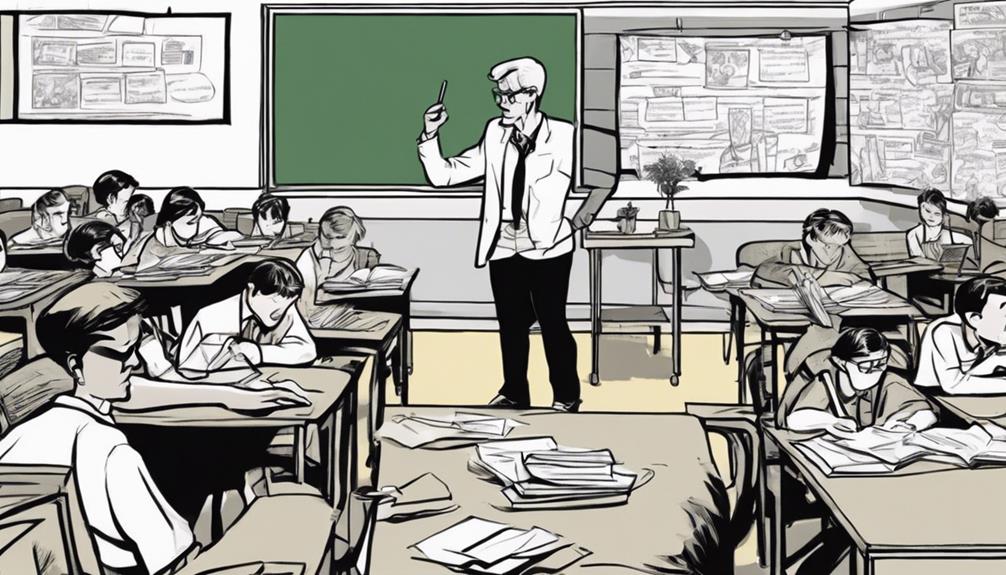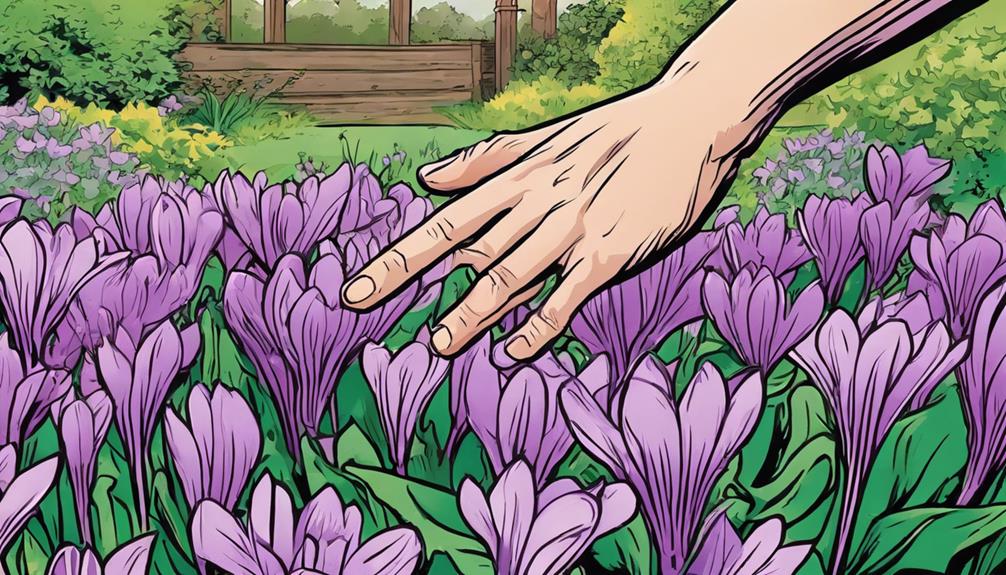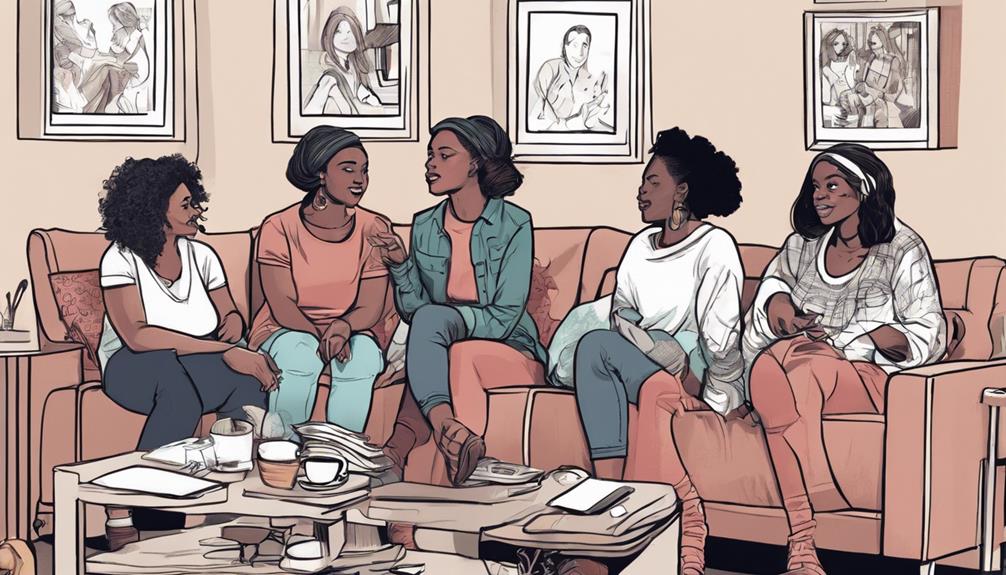Hey there, teacher under the observation spotlight! Feeling the stress of scrutiny? Well-crafted lesson plans can feel the heat during evaluations, impacting your confidence and performance. But worry not! Embrace challenges, seek feedback, and grow from the experience. Consider peer observations, seek feedback from colleagues, and utilize student insights for enhancement. Remember, it’s all about continuous professional growth and collaboration. Online communities like Richard Rogers can also provide support and resources. Stay tuned for more tips on handling observation pressure like a pro! So many strategies await to ease your stress and enhance your teaching game!
Key Takeaways
- Observation pressure impacts confidence and performance.
- Seek feedback for growth and development.
- Embrace challenges during observations.
- Utilize observations for skill enhancement.
- Peer observations and feedback can reduce stress.
Observation Stress Factors
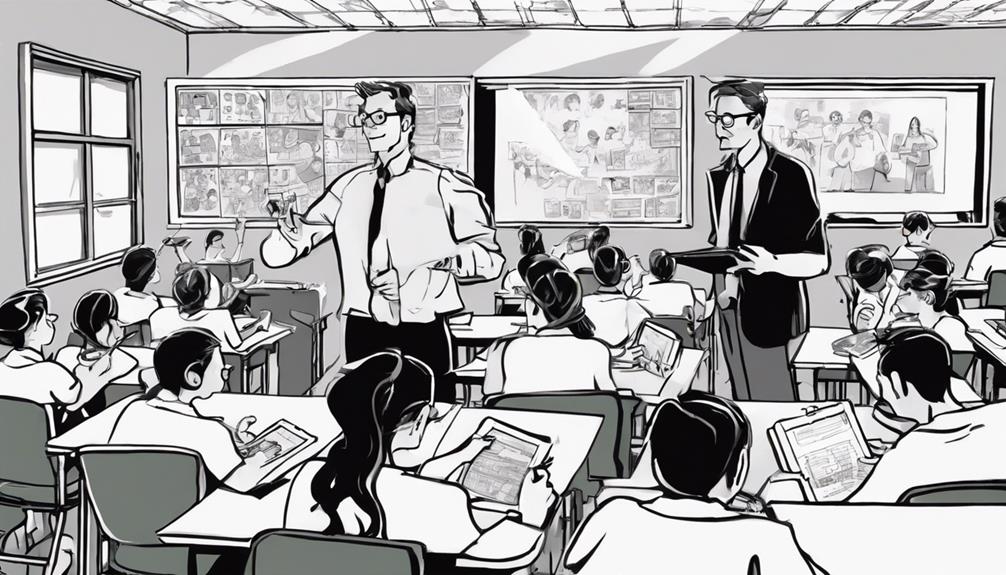
Imagine this: you spend hours crafting the perfect lesson plan, ensuring every detail is impeccable, only to have it scrutinized in a brief observation session. The pressure is on, and it can feel like all eyes are on you, judging every move you make in the classroom.
This stress can be overwhelming, impacting your confidence and performance. However, it's essential to remember that observations are meant for growth and development. Embrace the challenge, seek feedback, and use it as an opportunity to enhance your teaching skills.
Alternative Approach Recommendations
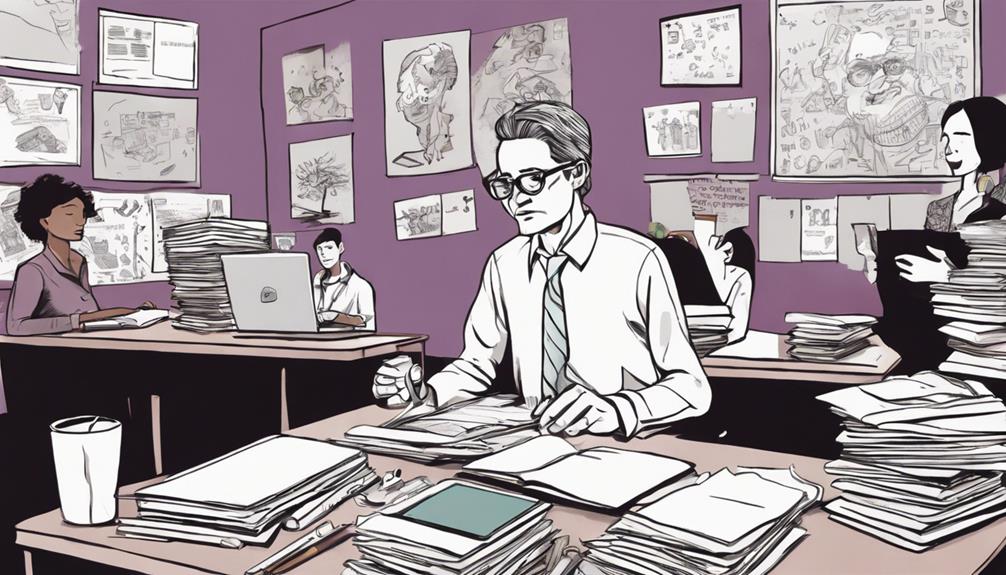
Consider implementing collaborative strategies to identify your teaching strengths and areas for improvement. Here are some recommendations to help you navigate observation pressures and enhance your professional growth:
- Utilize team members' strengths for peer observations: Learn from your colleagues' expertise and offer reciprocal support.
- Seek feedback from colleagues on specific teaching aspects: Receive constructive criticism to refine your teaching methods.
- Document reflections for teacher appraisals: Keep a record of your thoughts and experiences to track your progress.
- Emphasize continuous professional growth: Stay committed to ongoing development and learning opportunities.
- Utilize student feedback for insights: Students' perspectives can provide valuable insights into your teaching effectiveness.
Importance of Student Feedback
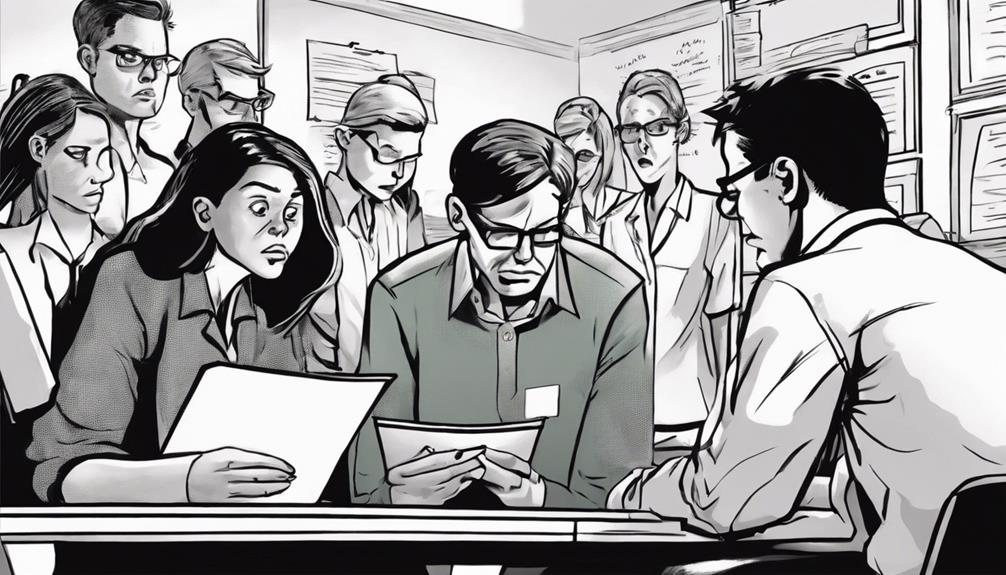
To gain valuable insights into your teaching effectiveness, incorporating student feedback is essential. Students hold a unique perspective on your lessons, and their input can guide you towards becoming an even better educator.
When kids feel heard and valued, they're more engaged and motivated to learn. Imagine receiving feedback from your students that helps you understand what teaching methods resonate with them and where you might need to make adjustments.
Setting up anonymous feedback forms can encourage honest responses, and student-led self-appraisals can provide a fresh outlook on your teaching style. Remember, creating a culture of support where students feel comfortable providing feedback can lead to significant improvements in your professional development.
Professional Development Environment
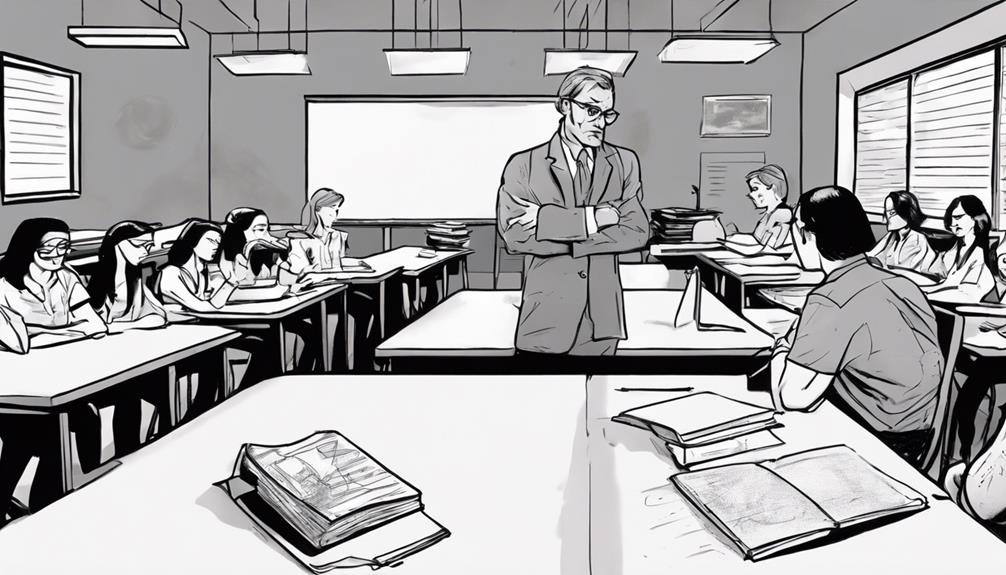
Creating an ideal professional development environment involves fostering a culture of mutual support among teachers and students. Here are some key elements to take into account:
- Encouraging collaboration among teachers for growth and performance management
- Emphasizing peer-to-peer learning opportunities
- Highlighting the importance of collective improvement for all involved
- Creating a positive and supportive atmosphere that nurtures development
- Establishing a sense of teamwork and shared goals to enhance professional growth
Online Community Engagement

Engage with the Richard Rogers online community to connect, share, and stay informed on current educational resources and discussions.
By following Richard Rogers on social media, you can access updates, share content on platforms like Twitter and Facebook, and explore a wealth of educational materials and dialogues.
Imagine being able to participate in conversations with fellow educators, sharing innovative teaching strategies, and gaining insights into the latest trends in education – all at your fingertips!
This online community provides a space for collaboration, idea exchange, and continuous learning.
Frequently Asked Questions
How Can Teachers Alleviate Observation Stress in Real-Time During a Lesson?
To alleviate observation stress in real-time during a lesson, remember to breathe and focus on your teaching strengths. Stay calm, engage students actively, and trust your preparation. Embrace the opportunity to showcase your skills confidently.
Are There Specific Strategies for Incorporating Student Feedback Into Lesson Planning?
Incorporating student feedback into lesson planning can be enlightening. Symbolize their voices as guiding stars; listen actively, create space for input, and adjust teaching strategies accordingly. Their insights illuminate paths to effective learning experiences.
What Are Practical Ways to Promote a Culture of Mutual Support Among Teachers?
To foster mutual support among teachers, collaborate on identifying strengths, seek peer observations, and provide feedback. Emphasize continuous growth through reflections and collective improvement. Encourage a positive environment for development, promoting peer-to-peer learning and a culture of support.
How Can Teachers Actively Engage in Online Communities for Professional Development?
To actively engage in online communities for professional development, start by connecting with Richard Rogers online. Follow for updates, share on Twitter and Facebook, and explore educational resources. Stay informed and join discussions for continuous growth.
What Role Do Student Self-Appraisals Play in Enhancing Teaching Effectiveness?
Student self-appraisals play a vital role in enhancing teaching effectiveness. Encourage students to provide feedback on your teaching style and methods. Their insights can help you improve and tailor your approach to better meet their learning needs.
Conclusion
To sum up, through embracing collaborative feedback, peer observations, and student input, you can transform the stressful observation process into a valuable tool for growth.
Imagine a supportive professional development environment where you can thrive and improve as a teacher.
Engaging with online communities like the Richard Rogers platform can provide additional resources and support.
Say goodbye to observation stress and hello to a culture of continuous improvement and camaraderie in your teaching journey.

